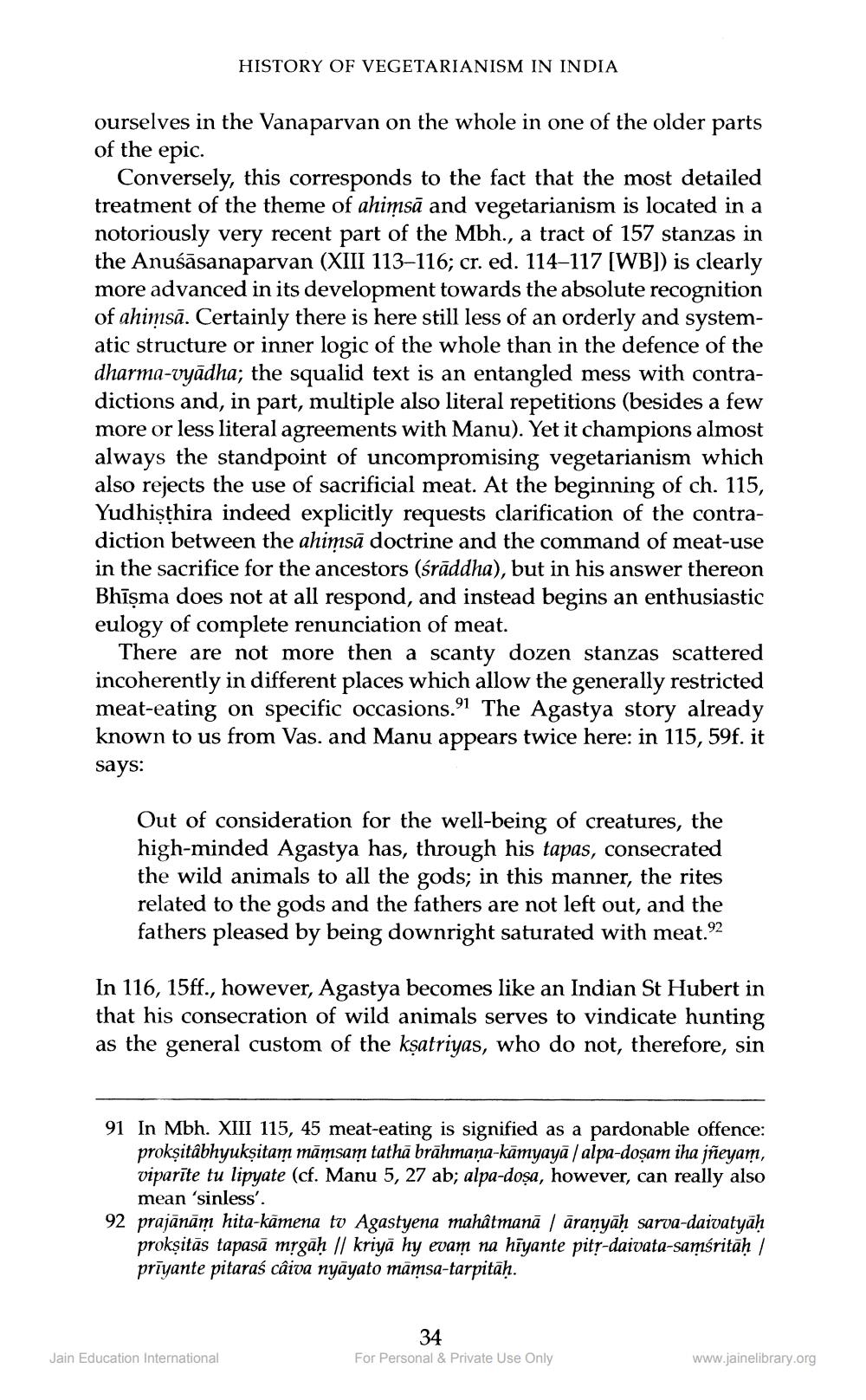________________
HISTORY OF VEGETARIANISM IN INDIA
ourselves in the Vanaparvan on the whole in one of the older parts of the epic.
Conversely, this corresponds to the fact that the most detailed treatment of the theme of ahimsā and vegetarianism is located in a notoriously very recent part of the Mbh., a tract of 157 stanzas in the Anušāsanaparvan (XIII 113–116; cr. ed. 114-117 (WB]) is clearly more advanced in its development towards the absolute recognition of ahimsā. Certainly there is here still less of an orderly and systematic structure or inner logic of the whole than in the defence of the dharma-vyādha; the squalid text is an entangled mess with contradictions and, in part, multiple also literal repetitions (besides a few more or less literal agreements with Manu). Yet it champions almost always the standpoint of uncompromising vegetarianism which also rejects the use of sacrificial meat. At the beginning of ch. 115, Yudhisthira indeed explicitly requests clarification of the contradiction between the ahimsā doctrine and the command of meat-use in the sacrifice for the ancestors (śrāddha), but in his answer thereon Bhīşma does not at all respond, and instead begins an enthusiastic eulogy of complete renunciation of meat.
There are not more then a scanty dozen stanzas scattered incoherently in different places which allow the generally restricted meat-eating on specific occasions.91 The Agastya story already known to us from Vas. and Manu appears twice here: in 115, 59f. it says:
Out of consideration for the well-being of creatures, the high-minded Agastya has, through his tapas, consecrated the wild animals to all the gods; in this manner, the rites related to the gods and the fathers are not left out, and the fathers pleased by being downright saturated with meat. 92
In 116, 15ff., however, Agastya becomes like an Indian St Hubert in that his consecration of wild animals serves to vindicate hunting as the general custom of the kşatriyas, who do not, therefore, sin
91 In Mbh. XIII 115, 45 meat-eating is signified as a pardonable offence:
prokşitâbhyukṣitam māmsam tathā brāhmaṇa-kāmyayā / alpa-dosam iha jñeyam, viparīte tu lipyate (cf. Manu 5, 27 ab; alpa-dosa, however, can really also
mean 'sinless'. 92 prajānām hita-kāmena tv Agastyena mahâtmanā / āraṇyāḥ sarva-daivatyāḥ
proksitās tapasā mrgaḥ // kriyā hy evam na hiyante pitr-daivata-samśritāḥ / prīyante pitaraś câiva nyāyato māmsa-tarpitāḥ.
34
Jain Education International
For Personal & Private Use Only
www.jainelibrary.org




